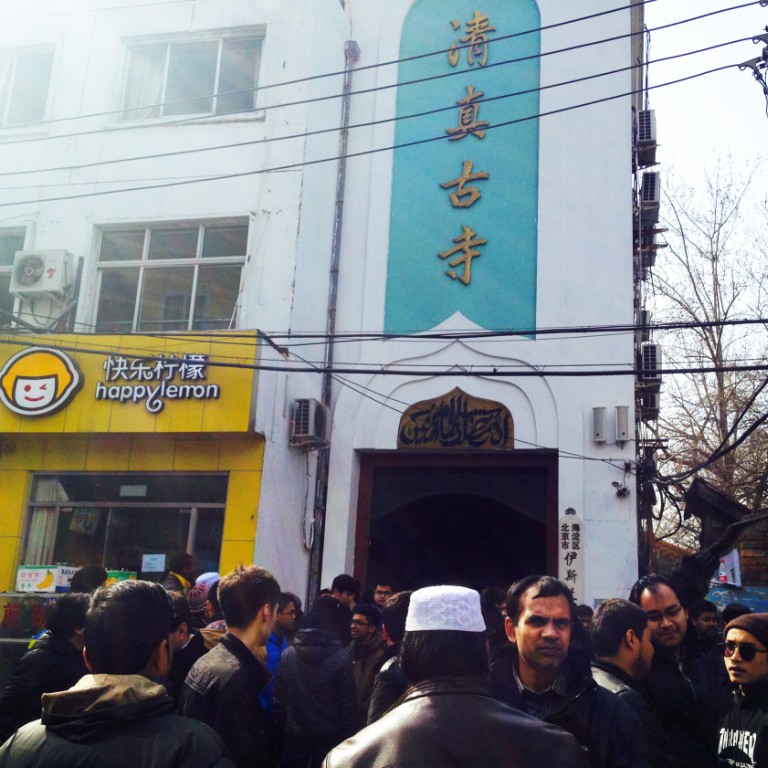
Uygurs in Beijing feel the chill after deadly Kunming knife attack
Members of ethnic minority living in Beijing say life has grown more difficult following the Kunming rampage, and some plan to move abroad
Reverberations from the Kunming attack nearly two weeks ago are being felt thousands of kilometres away in Beijing, where Uygurs say they face stricter identity checks and worry about their prospects.
"I was told by municipal officials I can no longer sell pancakes near the national library after the Kunming attack happened," said a middle-aged Uygur man, who runs a stall outside the Haidian mosque.
He moved his small business, and has tried to keep a low profile, he said. "I sell fewer pancakes these days. Friends and family warned me not to go out to avoid police checks."
Tensions between Han and the mostly Muslim Uygur minority have intensified since five assailants killed 29 people and injured more than 140 others in an attack in the Yunnan capital. The government has said it was carried out by Xinjiang separatists, although it has not blamed Uygurs specifically.

Zhu Weiqun , the chairman of the ethnic and religious affairs panel of the top advisory body to parliament, sought to drive home the distinction, telling the : "Most Uygurs are with us in the fight against separatism and violent terrorism."
But Uygurs say they have fallen under suspicion as a group nevertheless. Uyghur students at the nearby Minzu University of China (MUC) said they must now register their identities when entering the campus of the ethnic minority school.
One senior Uygur computer science student at MUC, who declined to be named, said he noticed news and photos of the attack on Sina Weibo not long after it was carried out. "I felt terrified following the posts. I was secretly hoping the attackers were not from Xinjiang," he said. "The next morning when Xinjiang's role was confirmed, I cried. Once again, Uygurs have been labelled and linked to a violent attack."
He said he and his Uygur friends wondered how such attacks could be prevented in the future. He believed additional violence was likely in his hometown in southern Xinjiang.
"I don't know what's going on. I didn't grow up with so much violence happening around me."
I always think we have to adapt to live with Han ... but it's harder to do so
Activists have said the central government could ease Uygurs' frustration by giving them better access to education and jobs. The MUC student agreed lack of opportunities led young Uygurs to dream about moving to bigger cities outside the region.
"Uygurs feel less safe living in Xinjiang right now. There's more violence and fear. What if Xinjiang becomes the next Chechnya?" he asked.
More than 100 people have been killed in violent attacks over the past year, according to tallies from media reports. In October, Beijing blamed separatists for a suicide car attack in Tiananmen Square that killed three of the assailants and two by-standers.
"It is unfair to link millions of Xinjiang citizens to the attack in Kunming," one person commented in a discussion following the Kunming rail station attack.
"We are from Xinjiang. We are also innocent civilians. Please do not label us as dissidents … May the dead be peaceful and the survivors stay strong," one group post read.
Some Uygurs fear more violence will erupt in response to the central government imposing stricter policies in the region. But Xinjiang party chief Zhang Chunxian denied a recent crackdown on separatism had fuelled anger among members of the minority group.
Another Uygur MUC student said he had already started planning to study abroad.
"I always think we are in a Chinese society and we have to adapt to live with Han Chinese," he said. "Then, we can practice our religion and hold onto our culture. But it's harder and harder to do so."
The stall-holder said he only learned how to make the treats in the local style in January and they drew more customers than naan bread did. He expects to stay put. "I have no choice. I have two children to feed."

